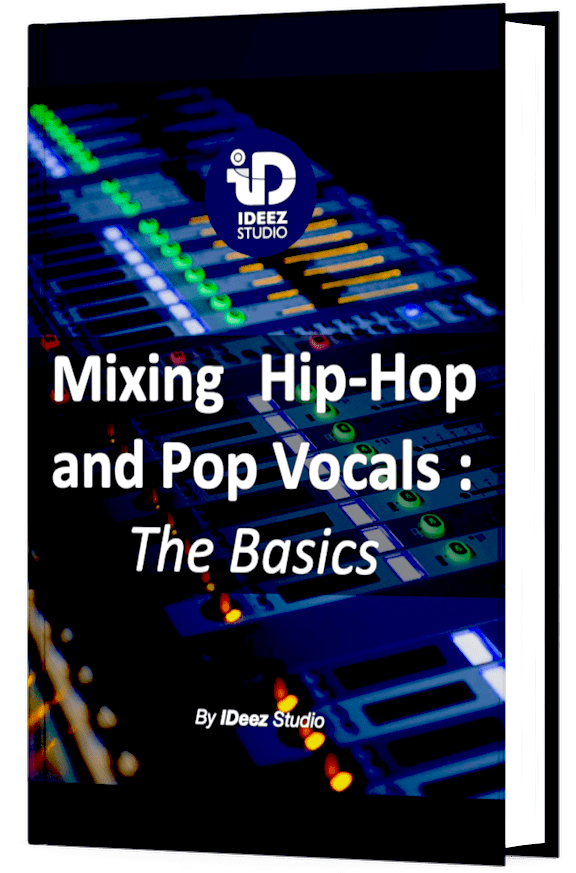Choosing the right mixing engineer for its music is not something easy. In order to make the right choice, you have to know all the criteria to take into account before you make your decision. I describe all these criteria in this article!

Here are the criteria to consider when choosing the right mixing engineer:
- Musical genre
- Portfolio
- Mixing style
- Reviews
- Price / budget
- Turnaround time
There will obviously be some details that will tip the balance from one engineer to another, but these 6 elements are essential to a good choice.
Also keep in mind that the person you choose may be the person you work with for several months. That’s what I advise you to do. Because changing the mixing engineer will change the sound identity that comes out. It is important to have a certain linearity in your music.

What you should not include in your criteria
Before I start describing all the criteria to consider when making a decision, I think it is important to also specify what not to consider.
This will prevent you from making bad decisions because of criteria that don’t deserve more attention than that. There are certain traps that you should not fall into. And I wish you would avoid them!
A. Gear

This is the biggest trap you can fall into when looking for a mixing engineer to work with: focusing on the audio gear he/she shows to his/hrr visitors.
Gear does not make a good mix, and it never will! Especially since many sound engineers nowadays play with this element to look good, but it doesn’t change the final quality of a mix.
There is certainly an analog touch that can be added to the whole mix and give a “pro” touch, that’s undeniable! But nowadays, plugins are becoming more and more impressive in terms of the quality they can offer to users.
A good engineer will always be better than good analog gear.
I found this video from Paul Third very interesting. His perception of things regarding analog gear is worth seeing and listening to:
B. Location
No, not all good mixing engineers are in the US. That’s often where the most successful sound engineers go (along with England), but that doesn’t mean that all the others are bad, quite the contrary!
Many good sound engineers are located elsewhere in the world and simply have less opportunity than others because of their location. But that doesn’t take away their talent!
In this day and age, where online work is more and more prized, it’s clear that everyone around the world should be given a chance. Let’s take advantage of modern technology!
C. Website design
Nowadays, our minds focus a lot on our image and appearance. This often leads to preconceived notions that don’t really belong.
In an online search, the design of a site can be one of those elements that distort reality. It can sometimes give an image that does not reflect the reality of things.
Remember that you are looking for a mixing engineer (and therefore a sound and music connoisseur) not a designer.
Need a professional sound engineer specializing in pop and hip-hop mixing ? Great! Take a look at our services and let’s blow up your career together!
Let’s start now!
1. Musical genre

The first thing to look at when choosing a mixing engineer is the musical genre he/she is in. This is very important, because all musical genres are very different from each other.
You will never mix a soul song the same way you would mix a hip-hop song. The sound sources are extremely different from each other and, most importantly, the audience is different too.
Also, there are mixing codes in each musical genre that need to be respected as much as possible. A mixing engineer who misses the codes can potentially ruin your project, even with a “good” mix.
In this respect, there is a red flag that should be avoided: the mixing engineer who claims to work in all musical genres. Uuuh it can be very dangerous to work with that kind of person. I strongly advise against it.
Society is turning more and more to very niche specialists, and the music world is no exception. If you spot phrases like “I’m a producer, sound engineer, sound designer, musician, I work in every possible genre and I’ll make your music sound great!”, just run away.
2. Portfolio

A mixing engineer who doesn’t have a portfolio of his mixes quickly accessible on his website is a sound engineer you shouldn’t hire.
The portfolio is an element that allows you to have direct answers about the quality of the mixes that can be offered by the person you are ready to hire.
But a portfolio in itself is not enough, besides the quality of the mixes, it must be a good portfolio.
A good portfolio is composed, in my opinion, of 3 essential elements:
- A before/after process: It’s hard to make an opinion if you don’t know what was there before the mix you hear. A before/after system is therefore essential.
- A (relatively) good player: Even if, for reasons of storage space, it is often mp3 that is used. Using a relatively good quality format is important to get a good idea of the quality offered. Red flag: Soundcloud player.
- A minimum number of examples of mixes: Difficult to get an idea on 2 mixes. The minimum should be 4 to 5 different samples.
If all these conditions are met AND the portfolio is of good quality, it is a very good thing for this mix engineer.
ℹ️ Do you know how to send your tracks to a mixing engineer? I explain everything in detail here: 9 Essential Steps For Sending Tracks To a Mixing Engineer
3. Mixing style

Behind the genre in which the mixing engineer you will choose is, it is also important to take into account the style that emerges from his/her mixes.
This is totally out of the objective aspect. It’s about elements that have to fit with your personal taste. Here are the criteria on which you can focus:
A. Use of effects
The use of effects such as reverb and delay are usually an important part of a mixer’s overall style. The effects and their place in the mix usually determine which direction the universe takes in the song.
Are there many effects in the tracks he/she has mixed? Are they rather intimate or rather airy? Is it varied or do they all join a rather similar timbre? All these questions will already help you to determine if the mixing engineer’s style fits well with your own style and taste.
B. General frequency spectrum
The frequency spectrum preferred by the sound engineer is also important, especially at a time when the industry is very open to various mix colors.
Is it, in general, rather dark or on the contrary very open at the top of the spectrum? Is it relatively balanced? Try to listen carefully to the whole portfolio and find out something about the frequency spectrum.
C. Balance
What about the balances favored by the mixing engineer? Are there elements that are more emphasized than others? Vocals, snare, kick, or even instrumental versus vocals, some generalities can sometimes stand out.
You may not be able to make any generalizations about the style of the mixing engineer you visit. If this is the case, it is rather positive, because it means that he knows how to adapt to the different situations imposed by the artists he works with.
One could also think, in this case, that he is a sound engineer without identity and that he doesn’t bring anything particular to his artists. But normally, if his mixes sound good in your ears, you can relate to the first case: adaptation to the artist.
ℹ️ There are super simple things you can do to improve your mixing skills, here they are: 5 Things You Can Do Now To Improve Your Mixing Skills
4. Reviews

What do his/her past clients say about this person’s services? Are they good or mixed? And, if they are good, do the clients seem downright blown away by the quality of the mix that this mix engineer offers to his/her clients?
To do this the right way, you have to go to the right place. Because it’s obvious that on the site itself, you’ll only find the best reviews, the ones that will make potential future clients feel confident.
The first place I would go would be Google, and more precisely the Google My Business page of the mixing engineer (or of his studio). Because there, no filter is possible, everything is there, whether it is positive or negative. And generally, on Google, the unhappy customers are quite wild.
The second place to go to see the reviews is on TrustPilot. A lot of studios aren’t linked to TrustPilot yet because it’s a relatively new site. But if the mixing engineer is linked to this site, the reviews there can be very interesting too.
Whether on TrustPilot or My Business, an average rating of 4.5/5 should clearly be the bare minimum to trust a mixing engineer. A score closer to 4.8 or even 5 is ideal.

5. Price / budget

The budget you have planned for each project must absolutely be in line with the price of the services offered.
Depending on the engineer, the prices proposed will be either fixed prices or prices depending on the size of the project proposed by the client.
In the first case, you will have to adapt your budget to the price of the service. If the price is too high for you, then it is better to look for another mixing engineer.
If the prices are not fixed and the mixing engineer works through quotes, I advise you to always try to negotiate prices a little lower than the ones proposed and/or to announce a budget a little lower than your real budget. You might see this as dishonesty, but it’s not at all! It is simply a way to keep both parties happy.
- If the proposed price is 10% around your budget and the previous criteria are met, go for it!
- If the mixing engineer offers you a price between 10% and 30% above your budget, keep comparing with other engineers but keep his offer in mind. It could be a good offer for the quality delivered.
- And finally, if the offer is more than 30%-35% above your budget, I would advise you to look for another mixing engineer, because your expectations might be ultra high for a result that might not be worth it.
I would like to give you some quality trends based on the price range offered. The prices offered online vary as much as the audio quality offered by the mixing engineer. A $99 mix is likely to be more qualitative than a $550 mix. That’s why it’s important to first take the above criteria into account before focusing on the price of the service.
6. Turnaround time

The turnaround time is clearly the least important criterion of this list, but it must be taken into account to be in accordance with your expectations.
If you need a mix quickly, you will obviously not choose a mixing engineer who offers turnaround times of 10 days. On the other hand, you don’t necessarily have to pay for a mixing engineer who charges more for super fast services if you don’t necessarily need fast services.
In this case, it is up to you to see, according to the previous criteria, if you are ready to adapt to the turnaround times of the mixing engineer in question.
Need a professional sound engineer specializing in pop and hip-hop mixing ? Great! Take a look at our services and let’s blow up your career together!
Let’s start now!
Conclusion
The musical genre, the quality of the portfolio, the mixing style, the reviews, the price and the turnaround time are, in order, the criteria that must be taken into account to choose the right mixing engineer for your future musical projects. Keep in mind that all criteria can rarely be fulfilled 100% by any mixing engineer. But it is still necessary to take all these criteria into account, to establish a degree of importance for each one, then to draw a “final score”. This is the best way to proceed. And it will save you unnecessary trouble with mixing engineers.
If you have any questions about this topic or about anything in the field of music mixing, please contact me, I’m always very happy to help!
Related Articles:
My favorite tools for mixing pop and hip-hop music:
Plugins
In the field of auto-tune, I’m convinced that nothing’s better and more efficient than Antares Auto-Tune Pro. As for the EQ’s, FabFilter Pro-Q3 and Slate Digital Infinity EQ are, in my opinion, the best tools. For compression, I have 2 favorites plugins: Waves RComp and UAD EL8 Distressor.
As for reverb, I’m a big fan of the Soundtoys Little Plate, but generally, I go for the Valhalla VintageVerb for its versatility. I also love the Arturia Rev PLATE-140 and the UAD Pure Plate for its organic side.
Headphones
The closed headphones I love and will always love using for mixing pop and hip-hop music are the Beyerdynamic DT-770. As for the best open-back headphones, I use the Sennheiser HD600 headphones, and I’m really happy of them!
Monitors
Having a pair of Yamaha HS7 in its studio or home studio is always cool for more excitement while listening to your mixes. The Adam Audio T7V monitors are also super accurate. In my studio, I also have a pair of Genelec 8030 for their reliability.
Hardware gear
For anyone who wants to start using hardware in their mixes, I always recommend these 2 units from Klark Teknik: the EQP-KT and the 76-KT. Don’t forget to use good converters, such as the Apollo interfaces. This is essential for a good rendering.






